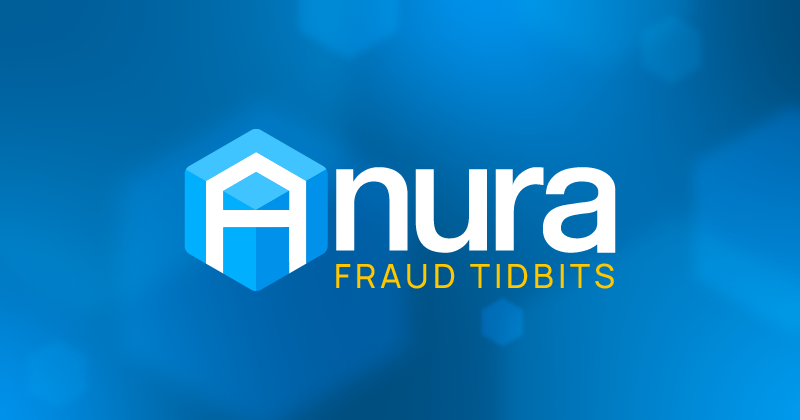The Top 8 Affiliate Marketing Scams (and How to Avoid Them)

TL;DR
- Affiliate marketing scams trick businesses into paying commissions for fake clicks, leads, or sales.
- These scams include cookie stuffing, click fraud, spoof traffic, and fake transactions.
- Affiliate fraud compromises data quality, sabotages ROI, and damages partner trust.
- Real-time affiliate fraud detection platforms are critical for prevention and protection.
What Are Affiliate Marketing Scams?
Affiliate marketing scams occur when fraudsters exploit affiliate programs to steal commissions without delivering legitimate conversions. These scams come in many forms, some are technical, while others are tactical, but all result in wasted ad spend, misleading performance data, and damaged relationships with legitimate affiliates.
Here are eight of the most common affiliate marketing scams and how to fight back:
1. Cookie Stuffing
Fraudsters place affiliate cookies on a visitor’s browser without consent, claiming commissions for sales they didn’t earn, often overriding legitimate referrals.
Prevention Tip: Monitor for unnatural cookie placements and use advanced tracking to verify true attribution paths.
Want to know how to fight cookie stuffing within affiliate fraud? Learn more here.
2. Fake Leads
Scammers use bots or recycled data to submit fake contact forms, draining sales teams' time and triggering commission payouts for worthless leads.
Prevention Tip: Implement real-time affiliate fraud detection software.
3. Click Fraud
Fraudsters or their bots rapidly click affiliate links to inflate earnings. This affiliate click fraud tactic skews engagement metrics and eats into your budget.
Prevention Tip: Use a PPC fraud detection solution like Anura that blocks fake clicks before they impact campaign performance.
4. Spoof Traffic
Spoofers use bots or click farms to simulate high-volume traffic, misleading you into believing affiliates are driving real interest.
Prevention Tip: Look for traffic irregularities like spikes from unexpected places or devices with no conversions.
5. Transaction Fraud
Fraudsters use stolen credit cards to make purchases, triggering commission payments. Chargebacks follow, leaving you to absorb the losses and with damaged reputation to your brand.
Prevention Tip: Partner with affiliates that undergo strict vetting.
6. Typosquatting / URL Hijacking
Scammers register lookalike domains (e.g., amaz0n.com), redirecting users and inserting their affiliate tags to steal credit for organic or branded traffic.
Prevention Tip: Monitor brand mentions and be aware of common typos used to fool users to avoid affiliate fraud.
7. Social Profile Spoofing
Fake affiliates use fabricated audiences on social media to get approved into programs. They generate fake engagement, clicks, and poor conversions.
Prevention Tip: Review affiliate traffic sources and vet profiles carefully—bots aren’t always obvious. If it looks suspicious, it probably is. When likes and comment seem off the probably are.
8. Sub-Affiliate Abuse
Some affiliates pass traffic through unvetted sub-networks, exposing your brand to click fraud, spam traffic, or affiliate program fraud.
Prevention Tip: Require sub-affiliate transparency and track partner-level traffic with detailed analytics.
How to Stop Affiliate Marketing Scams Before They Start
Fighting affiliate fraud requires more than just manual audits. Real affiliate fraud prevention demands:
- Real-time environmental analysis of traffic
- Blocking sophisticated invalid traffic (SIVT) not just general invalid traffic (GIVT)
- Actionable insights on fraud sources
Anura delivers affiliate fraud protection with 99.999% accuracy when marking a visitor as fraudulent and no false positives. We help businesses block scams before they impact ROI, without blocking real visitors or damaging legitimate affiliate relationships.
Want to stop affiliate marketing scams before they drain your budget?
Try Anura’s 15-day free trial and see the difference for yourself.
FAQs: Affiliate Marketing Scams
How do I protect my program from affiliate marketing scams?
Use a trusted affiliate fraud detection platform to analyze traffic in real time, verify affiliate performance, and block fake conversions at the source.
What is affiliate click fraud?
It’s when scammers generate fake clicks, often through bots or click farms, to trigger commissions. A pay per click fraud protection solution can help stop it.
How can I tell if my affiliate traffic is fake?
Look for the red flags of affiliate marketing fraud. A pay per click fraud protection platform offers the insight you need.
Can PPC fraud tools stop affiliate scams?
Yes, if they’re built for affiliate use cases. Anura’s ad fraud solution offers advanced analytics and accurate marking of fraud across all traffic.
What are marketing frauds, and how do they differ from affiliate marketing scams?
Marketing frauds is a broad term that refers to deceptive tactics used to manipulate marketing campaigns, mislead consumers, or steal ad spend. This includes click fraud, fake leads, ad stacking, impression fraud, and more. Affiliate marketing scams are a subset of marketing frauds that specifically target affiliate programs—where fraudsters trick advertisers into paying commissions for fake conversions. Both result in wasted spend and unreliable data, but affiliate scams often operate through commission abuse.

